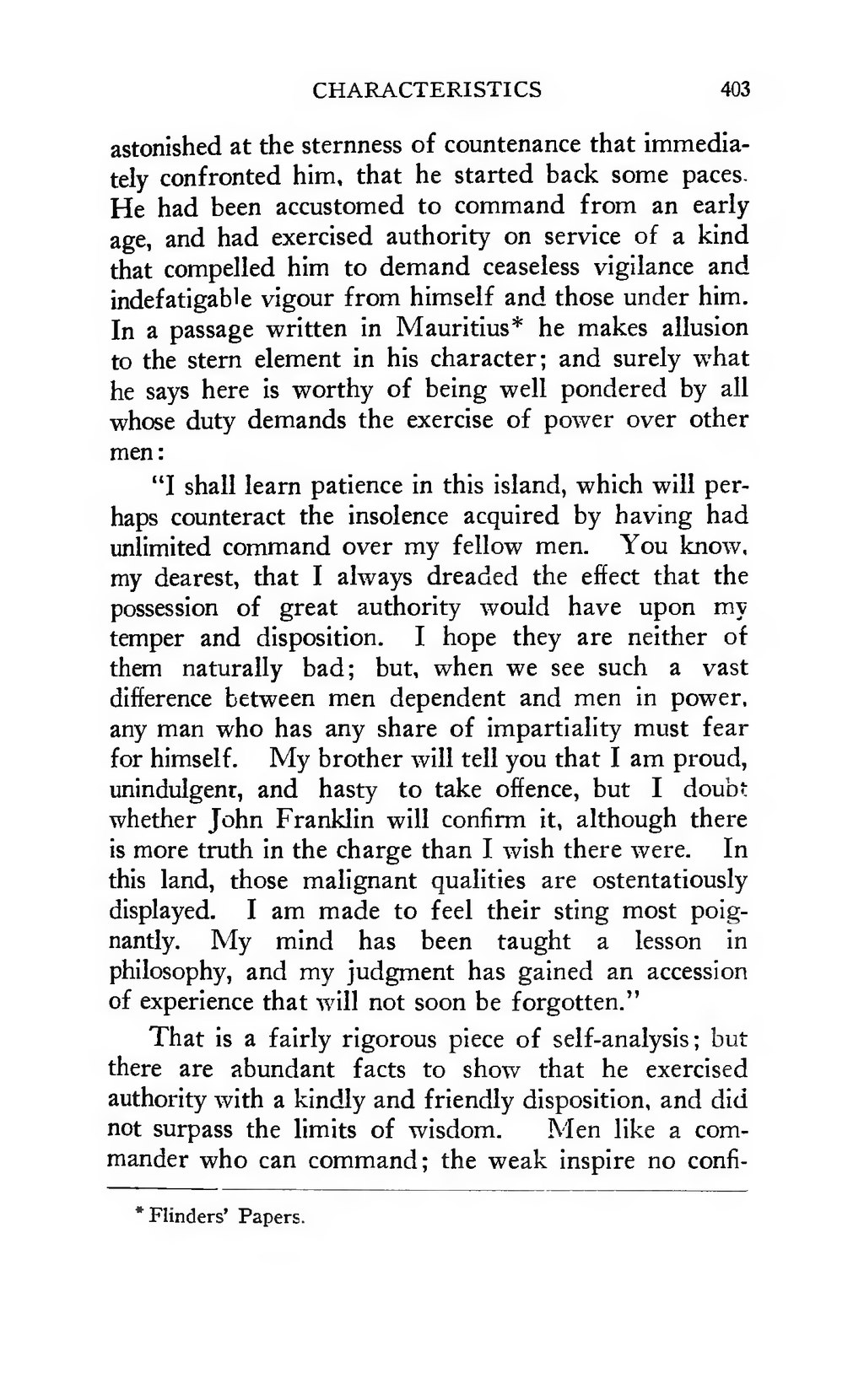astonished at the sternness of countenance that immediately confronted him, that he started back some paces. He had been accustomed to command from an early age, and had exercised authority on service of a kind that compelled him to demand ceaseless vigilance and indefatigable vigour from himself and those under him. In a passage written in Mauritius[1] he makes allusion to the stern element in his character; and surely what he says here is worthy of being well pondered by all whose duty demands the exercise of power over other men:
"I shall learn patience in this island, which will perhaps counteract the insolence acquired by having had unlimited command over my fellow men. You know, my dearest, that I always dreaded the effect that the possession of great authority would have upon my temper and disposition. I hope they are neither of them naturally bad; but, when we see such a vast difference between men dependent and men in power, any man who has any share of impartiality must fear for himself. My brother will tell you that I am proud, unindulgent, and hasty to take offence, but I doubt whether John Franklin will confirm it, although there is more truth in the charge than I wish there were. In this land, those malignant qualities are ostentatiously displayed. I am made to feel their sting most poignantly. My mind has been taught a lesson in philosophy, and my judgment has gained an accession of experience that will not soon be forgotten."
That is a fairly rigorous piece of self-analysis; but there are abundant facts to show that he exercised authority with a kindly and friendly disposition, and did not surpass the limits of wisdom. Men like a commander who can command; the weak inspire no confi-.
- ↑ Flinders' Papers.
